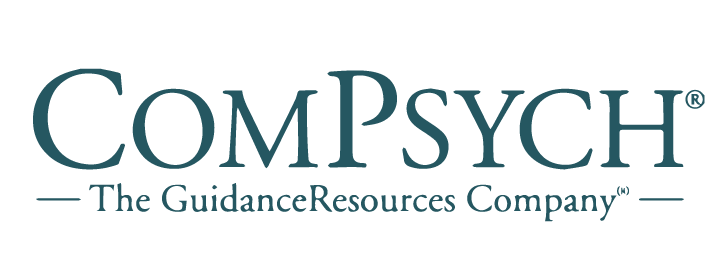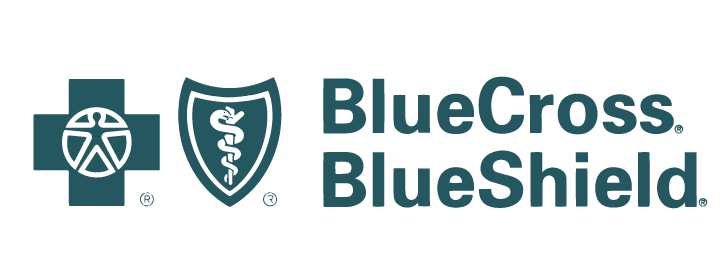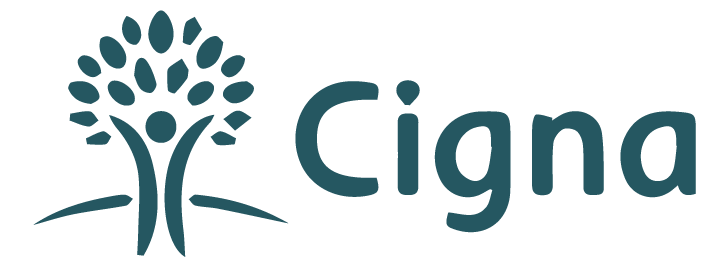Cocaine Addiction Treatment Center & Detox In Southern California
Table of Contents
What Is Cocaine Addiction?
Cocaine is an incredibly addictive stimulant drug that works by briefly boosting the brain’s dopamine production. As a result, cocaine produces strong feelings of euphoria, with an intensity lasting for about a half hour. Once the effect wears off, users often feel a need to use the drug again to reproduce the sensation. This mood boost can weaken with repeated use, resulting in a desire to use more as the body grows more dependent on it. This is how cocaine addiction happens so quickly.
Without the drug, individuals can start to feel serious symptoms of withdrawal, making it incredibly difficult to quit the drug “cold turkey.” The addiction often causes people to engage in risky behavior to keep using cocaine. This experience can cause individuals to put their health in danger, hurt personal relationships, avoid responsibilities, and experience financial distress.
When too much cocaine is used, a person can overdose. Cocaine overdose can result in rapid heart rate trouble breathing, chest pain, nausea or vomiting, and seizures. It can be fatal. Preventing these outcomes requires cocaine overdose treatment.
Since this drug dependency is so strong, entering a recovery program is usually necessary to break the cycle and establish sobriety. Stillwater is a top cocaine addiction treatment center in Southern California that can help.


Signs of Cocaine Addiction
Cocaine use can produce a wide range of physical symptoms—such as fast and irregular heartbeat, restlessness, dilated pupils, nausea and appetite loss, tremors, and increased body temperature. Common behavioral signs include sudden heightened energy and excitement, alertness, hypersensitivity, feelings of superiority, and violent outbursts.
Over time, cocaine addiction can negatively impact the respiratory system, particularly if the drug is snorted regularly. For example, it can cause a person to experience nosebleeds, persistent runny noses, loss of smell, and trouble swallowing.
Does cocaine make you tired? While the short-term use of the drug typically causes elation and alertness, the effects wear off quickly and can result in a crash. When crashing, a person may become fatigued and sleepy. Irritability, paranoia, loss of pleasure, and violent behaviors are also common.
The cycle of addiction can also cause a person to make cocaine use a top priority. In many cases, this results in serious problems with personal relationships, health, hygiene, finances, and meeting responsibilities. Individuals with addiction may withdraw from family and friends and lie about their drug use.
Due to strong chemical dependency and intense withdrawal symptoms, quitting “cold turkey” is incredibly difficult. This is why it’s important for people with addiction to seek immediate care from a cocaine detox program in California.
Our Luxury Detox & Rehab in California is Here For You Along Your Wellness Journey
How Do You Treat Cocaine Addiction?
Seeking Professional Help
Most addiction treatment professionals recommend a combination of talk therapy and a medication treatment approach to manage cocaine addiction. To increase the chances for a successful recovery, individuals addicted to cocaine are advised to seek professional help. Having professional support during recovery makes the process less isolating and reduces stress. Having the appropriate staff on hand to provide cocaine detox treatment can make the experience less distressing. Cocaine withdrawal treatment may require medication to ease the mental stress.
Detox
Deciding to stop using cocaine takes commitment, and cocaine detox is the first step. Although it is a significant hurdle, there is more to cocaine overdose than cocaine cleanses from the system. Cocaine detox includes experiencing cocaine withdrawal. People going through cocaine withdrawal treatment may exhibit the following:2
- Fatigue
- Anxiety
- Irritability
- Paranoia
- Sleepiness
- Agitation
- Extreme suspicion
Rehabilitation
Post-Treatment Counseling
What Are the Different Types of Rehab for Cocaine?
Inpatient Rehabilitation Programs
An inpatient cocaine treatment center provides a safe and comfortable environment for an individual to reside while undergoing cocaine detox and recovery. In an inpatient cocaine rehab program, the individual receiving assistance lives at the treatment center.
By creating distance from the temptations that led to their addiction, people can participate in cocaine detox treatment, recover, and learn new coping skills without distractions. An inpatient cocaine treatment center is also ideal for people struggling with mental illness or trauma alongside a cocaine addiction.
Most people with significant addiction issues choose an inpatient cocaine treatment center. These highly structured inpatient programs are staffed twenty-four hours a day by trained professionals, and many have medical staff on-site. Inpatient rehab is the ideal place to go through a cocaine detox protocol because professionals are available throughout the day. Cocaine detox protocols and medications are administered by trained staff.2
These programs also provide special amenities and events. Inpatient cocaine addiction treatment programs are intensive and immersive, but also include leisure and social activities to offer balance.
Outpatient Rehabilitation Programs
Outpatient cocaine treatment programs are less intensive but still effective at assisting with recovery. In an outpatient cocaine abuse treatment center, individuals can live away from the facility.
A scheduled program helps to organize treatment, with the client visiting the facility frequently throughout the week to receive treatment and support. Many people choose outpatient services after staying at an inpatient cocaine treatment center as a way to transition back into living in the community.

Other Options to Support Cocaine Addiction Recovery
Support Groups
Support groups provide a solid foundation for people with cocaine addiction. Addiction can feel lonely, and support groups remind people who are struggling with addiction that they are not alone.
A support group also allows a person to network and find a sober community to help them through. Inpatient cocaine treatment centers and outpatient services have support groups to start their clients on the right path to recovery. Out in the community, a variety of support groups for people in recovery — and their families — are available.
Therapy
In addition to support groups, individuals in recovery are recommended to attend therapy. Childhood trauma,3 mental illness,4 and volatile personal relationships all impact addiction, and receiving therapy can help manage the thoughts and emotions that trigger addiction and make ongoing recovery challenging.
Talk therapy is individualized to meet the needs of each person. Some examples of common therapy models used for cocaine addiction are:
- Family therapy
- Motivational interviewing (MI)
- Cognitive-behavioral therapy (CBT)
- Dialectical behavioral therapy (DBT)
- Contingency management (CM)\
- Eye movement desensitization reprocessing (EMDR)
- 12-Step facilitation
Cocaine Anonymous and 12-Step
Several cocaine rehab programs incorporate the 12-Step Program into their therapy. 12-Step Programs and Cocaine Anonymous stem from the belief held by Alcoholics Anonymous (AA).5 Although Cocaine Anonymous is not directly affiliated with Alcoholics Anonymous, Cocaine Anonymous utilizes the same text and traditions. In addition, Cocaine Anonymous publishes its own book called Hope, Faith and Courage: Stories from the Fellowship of Cocaine Anonymous.
The members of Cocaine Anonymous work together to help one another maintain their sobriety. They also share their past and current struggles with each other, as a way to strengthen their resolve to remain sober and relate to one another. The 12-Steps involve a process that actively calls on the members to fulfill each step. By fulfilling the steps, healing is achieved.
Escape Addiction For Good.
You do not have to face recovery alone. Reach out to Stillwater Behavioral Health to learn how to end the cycle of addiction and regain a hold of your life. Fill the form and one of our caring treatment coordinators will contact you shortly.
Open 24 hours, 7 days a week
(800) 840-7195
Contact Us


What Happens if I Relapse?
The potential for relapse is always present, but knowing what signs to look for can stop it from occurring. Getting help as soon as the signs appear can keep relapse at bay. Unfortunately, relapse happens. According to the National Institute on Drug Abuse, about 40-60% of people in recovery will relapse.6 That said, rehab treatment centers understand that a relapse is a possibility and are trained to respond.
Emotional Signs
The first sign of relapse is typically emotional. Feelings of anxiety, depression, and anger are all emotional triggers for relapse. Often, an individual might experience mood swings, changes in eating and sleeping, or a feeling of restlessness. Seeking help through family, friends, therapists, or a support group is critical at this point.
Mental Signs
If the emotional signs of relapse are overlooked, an individual might find themselves thinking about returning to their cocaine use. Their mental focus is on their cravings and they may decide to use cocaine at this point.
Physical Signs
Once a person sets their mind to return to using cocaine, they may take the final step and do it. At this point, it is vital to return the individual to rehab. If drug use during relapse was heavy, the individual may require a cocaine detox or cocaine withdrawal treatment.
How to Find Cocaine Addiction Treatment in Southern California
Finding the appropriate cocaine rehab programs takes a little investigating but can make all the difference in the long run. Understand your rehab goals to determine which treatment center can meet those goals. Then, consult with a treatment provider to see what programs suit your needs.
People who have a mental illness or a significant history of cocaine use may benefit from an inpatient cocaine rehab. Because cocaine rehab programs have varying lengths of stay, find one that works for you. If you are looking at receiving MAT for cocaine recovery, then finding medication-assisted treatment should be a priority.
Cocaine recovery centers may also have different amenities, which you can inquire about. For many people, location is important. Because outpatient treatment centers require back-and-forth travel, they should be near to where you live or work. Compare rehabilitation facilities using these factors as well as costs.
In the end, commit to enroll in a cocaine addiction treatment program. A successful cocaine recovery using a rehab facility only occurs if the person enrolls. Taking the step to stop using cocaine is a commitment, but it is not one you have to do alone — a cocaine recovery center is out there for you.
Why Cocaine Addiction Treatment is Necessary
If you or a loved one requires a cocaine addiction treatment center in Southern California, it’s important to act fast. Without proper treatment, addiction can lead to serious consequences.
Most notably, excessive cocaine use can result in a life-threatening overdose. Overdose can cause seizures, rapid heart rate, vomiting, breathing problems, and other harmful physical conditions that require medical intervention.
Long-term use is also associated with many debilitating cocaine health risks—such as malnourishment and severe weight loss, as well as increased risk of stroke, seizures, and neurological problems. Chronic use may also cause serious damage to the heart, respiratory system, brain, and blood vessels.
Since cocaine results in high tolerance and intense cravings without regular use, professional intervention by a qualified treatment center is often necessary to promote lasting recovery.
Does Insurance Cover Cocaine Addiction Treatment?







The Benefits of Southern California for Treatment
If you’re considering a cocaine detox center, Southern California is an exceptional place to plan for recovery. Stillwater’s residential treatment centers are found in tranquil locations that are surrounded by Southern California’s beautiful, natural surroundings. Many find that these refreshing environments allow for focused recovery away from the distractions of everyday life.
Southern California is also home to many leading addiction recovery professionals. For example, Stillwater works with a diverse team of addiction specialists who understand how to develop safe and effective treatment plans. These individualized treatment plans use the latest therapies to address the causes of addiction and develop a strong foundation for lasting recovery.
Our treatment centers are also equipped with top-tier amenities—such as nutritious meals, private accommodations, and world-class wellness resources.
Get Help for Cocaine Addiction Today
Cocaine addiction is not a course you have to stay on. With residential detox and recovery at Stillwater Treatment Center, you can safely and comfortably address all aspects of drug dependency with comprehensive, individualized care. To learn more about starting treatment, our recovery approach, or our amenities, reach out to one of our compassionate team members at any time of any day by calling (800) 840-7195.
FAQs About Cocaine Addiction Treatment
How long does cocaine addiction treatment take?
What is the success rate of cocaine addiction treatment?
How can family members and friends support someone going through cocaine addiction treatment?
If someone you care about is struggling with a cocaine addiction, offering your support can help them stay motivated to establish and maintain sobriety. Take time to learn about the addiction, as it can help you understand what your loved one is going through and what their healing process may be like.
Whenever you need to address the addiction, coming from a judgment-free place of love, can help avoid additional conflict that may interfere with your loved one’s recovery journey. Throughout recovery, you might also consider ways to stay involved with the process—such as by attending family counseling. Taking these steps can help your loved one feel like they are not alone.
It’s important to note that not everyone will initially be receptive to the idea of addiction recovery. In these cases, trust in the guidance offered by a treatment provider—such as Stillwater—to pursue intervention and develop a practical plan for getting your loved one into treatment.
Resources
- https://www.drugabuse.gov/publications/research-reports/cocaine/what-treatments-are-effective-cocaine-abusers
- https://medlineplus.gov/ency/article/000947.htm
- https://www.psychologytoday.com/us/blog/understanding-addiction/202109/why-trauma-can-lead-addiction
- https://www.nimh.nih.gov/health/topics/substance-use-and-mental-health
- https://12step.org/references/12-step-versions/ca/
- https://www.drugabuse.gov/publications/principles-drug-addiction-treatment-research-based-guide-third-edition/frequently-asked-questions/how-effective-drug-addiction-treatment
